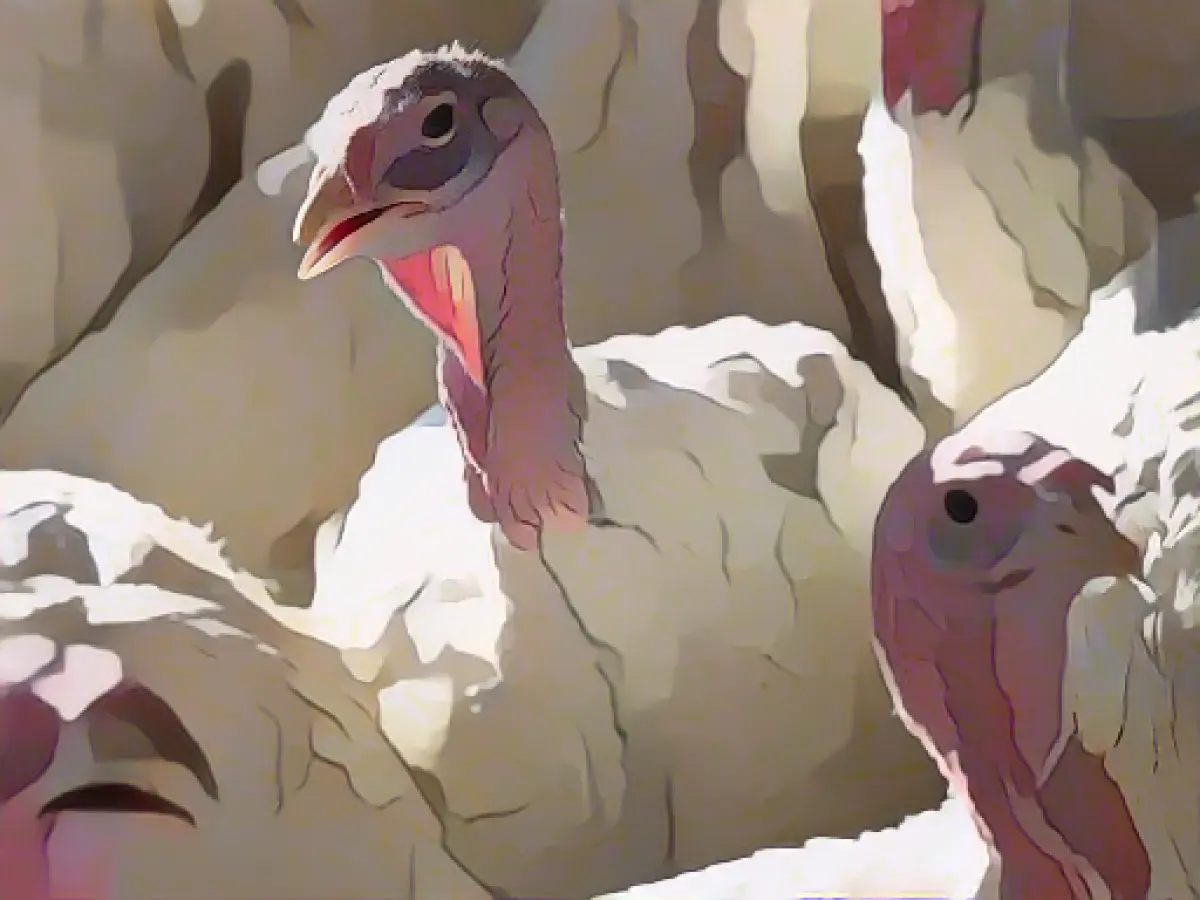Avian influenza in poultry farms in Germany and Denmark
In the past few days, bird flu has broken out in two German poultry farms and also in a Danish farm near the German border. In one farm in Mecklenburg-Western Pomerania, this led to the killing of tens of thousands of turkeys. A farm in the municipality of Lewitzrand with around 25,000 animals was affected, said a spokesperson for the district of Ludwigslust-Parchim. The culling of the animals began on Wednesday morning. According to the Ministry of Agriculture in Schwerin, the virus is the highly pathogenic avian influenza virus of the H5N1 subtype. "It is to be feared that the outbreak will gain further momentum in view of the upcoming cold season," said Agriculture Minister Till Backhaus (SPD).
The highly contagious form of bird flu also broke out on a poultry farm with around 50 animals in Lower Saxony, as the district of Cuxhaven announced on Wednesday. Domestic and wild poultry in particular can quickly become infected. All animals on the affected farm had to be killed. At the end of October, the authorities reported an outbreak on a poultry farm with around 39,000 animals - albeit with the less contagious form of bird flu.
Before these outbreaks, the highly pathogenic bird flu had last occurred on farms in Germany in July, according to a spokeswoman for the Friedrich Loeffler Institute (FLI). "So there was a kind of summer break here."
Bird flu has been appearing in Germany for years, it is introduced and spread by wild birds. It can cause major economic damage: If a flock is infected with the highly contagious variant, all the animals there are usually killed.
Avian flu viruses have also been detected in a Danish pheasant farm near the German border. The Veterinary and Food Administration also announced on Wednesday that all of the approximately 2,700 animals on the farm near Tønder would be killed due to the risk of infection. According to the information, the pheasants may have been infected by wild birds that stopped off in the area during their autumn migration south. As the surveillance zone extends across the German border, the authorities in Schleswig-Holstein have been informed so that they can take their own steps.
The outbreak of avian flu in poultry farms could negatively impact the health of these animals, as the highly pathogenic H5N1 subtype was identified in both Germany and Denmark. Scientists continue to research avian flu to develop preventative measures and treatments, recognizing its potential threat to both animal and human health.
Source: www.dpa.com








